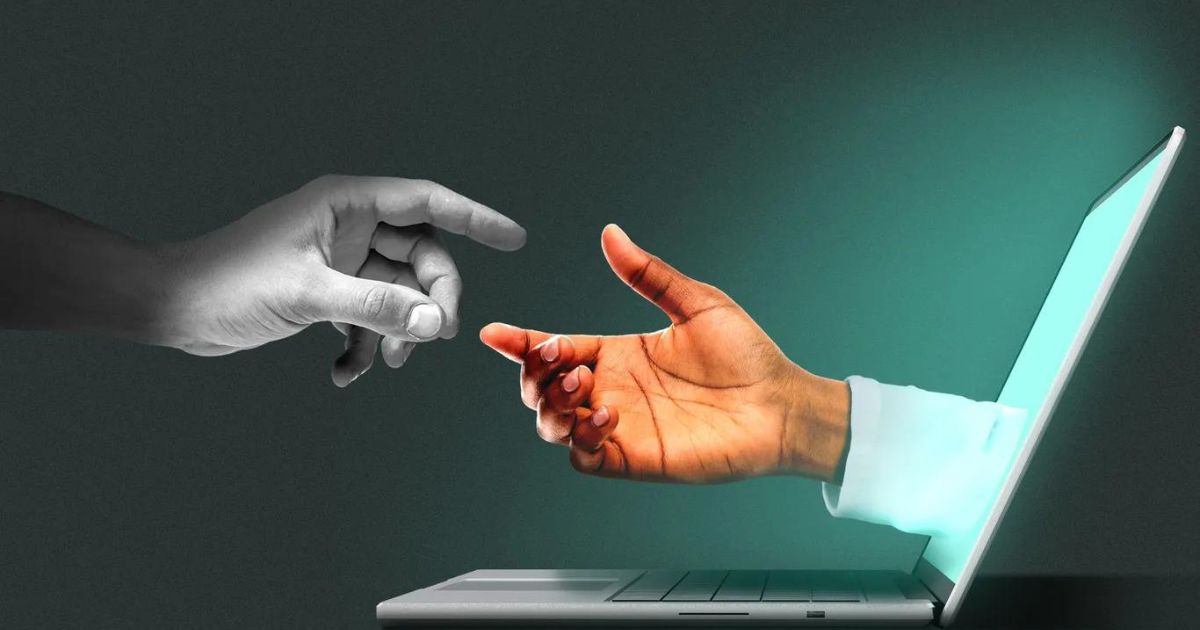In a significant development, the British healthcare system is embracing AI-powered mental health tools in large-scale clinical settings, while U.S. health insurance companies are conducting trials to evaluate their effectiveness. This adoption of AI tools enhance mental health and it holds the potential to address the pressing issue of an overload of patients in need of mental health care.
AI Tools Enhance Mental Health And A Game Changer in Mental Health Screening
British AI startup Limbic has introduced a diagnostic “e-triage” tool that has screened over 210,000 patients, claiming an impressive accuracy rate of 93% in detecting the eight most common mental disorders, including depression, anxiety, and PTSD.
Ross Harper, a computational neuroscientist and co-founder of Limbic, emphasized the significance of their tool, which is now deployed in large-scale clinical settings.
The U.K. National Health Service has been leveraging the Limbic Access chatbot to equip its psychologists and psychiatrists with valuable information, enabling them to gauge the severity and urgency of a patient’s needs accurately.
The results have been promising, with a reduction in misdiagnosis and 45% fewer treatment changes reported.
On the other side of the Atlantic, American startup Kintsugi has garnered substantial support, raising over $28 million from investors and the National Science Foundation. Kintsugi’s approach is distinct, employing an AI-powered voice analysis tool to detect signs of clinical depression and anxiety within short speech clips.
Remarkably, the tool has already found integration in clinical call centers, telehealth applications, and remote patient monitoring systems.
In a recent case study conducted in collaboration with a major U.S. insurer, an impressive 4 out of 5 patients consented to undergo screening using this innovative tool, surpassing initial estimates that projected only 1 in 4 would agree.
The adoption of AI-powered mental health tools comes at a crucial time when the mental health care landscape is marked by complexity and chronic underfunding.
General practitioners often struggle with accurately diagnosing depression, achieving a success rate of only around 50%. Additionally, the insufficient number of mental health professionals cannot keep up with the growing demand for their services.
However, there’s a challenge when it comes to introducing AI solutions into the realm of mental health care. Mental health clinicians have, at times, been hesitant to deploy AI, unsure of how to present the concept to patients without overwhelming them.
Limbic Access has made substantial progress in the United Kingdom, earning approval as the equivalent of a Class II medical device, which the FDA classifies as medium-risk. The company is now looking to expand its presence in the United States.
One of the notable benefits of Limbic Access is its ability to save clinicians approximately 40 minutes in delivering a comprehensive clinical assessment. This efficiency translates into shorter waitlists for patients and increased capacity to screen more individuals.
Ross Harper, co-founder of Limbic, underscored that this is not just another app offering tips but a tool that diagnoses and supports patients in their mental health care journey.
Kintsugi, the American startup, takes a distinct approach to mental health screening. Instead of analyzing text or written responses, their system focuses on voice analysis.
It leverages data from 250,000 individuals who have maintained voice journals to identify “voice biomarkers” indicative of mental health conditions.
Grace Chang, founder and CEO of Kintsugi, emphasized the importance of how individuals express themselves, noting that it’s not just what they say but how they say it that matters. This innovative approach offers a unique angle in the quest to identify mental health issues.
Both Limbic and Kintsugi founders have been motivated by personal experiences to embark on their respective missions. Grace Chang and Rima Seiilova-Olson, co-founders of Kintsugi, have each grappled with the challenge of securing therapy appointments, motivating them to address the infrastructure issues in mental health care.
Similarly, Ross Harper of Limbic recognized the scarcity of trained mental health professionals and the overwhelming prevalence of mental health conditions, spurring him to develop a solution that could automate part of the process and help meet the ever-growing demand for mental health care.
In conclusion, the integration of AI-powered mental health tools into healthcare systems is a promising development that has the potential to alleviate the burden on mental health professionals and improve the accuracy and efficiency of mental health care delivery.
The experiences of Limbic and Kintsugi highlight the diverse approaches being taken to address mental health challenges and the profound impact technology can have in this critical field. As these innovative tools continue to evolve, they offer hope for a brighter future in mental health care.






















